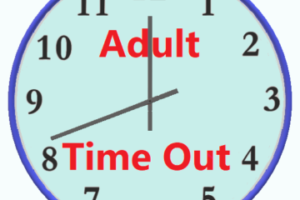Imposter Syndrome. Maybe you have heard of it?
You may have heard the word “imposter” before. In 2002 Leonardo DiCaprio starred in a movie, Catch Me If You Can, based on a real life imposter. The main character, Frank, was a skilled forger who presented himself as a doctor, a lawyer and a pilot. He had no training, experience, knowledge or credentials in the particular fields, but would pretend that he did. Frank as an imposter was trying to deceive and/or defraud others.
Imposter Syndrome is very different than the DiCaprio character. Imposter Syndrome is about putting on a confident front when inside you have self-doubt and/or question your abilities. You may feel like a fraud, when in fact you have the skills, training and credentials required. You only feel like you are not competent. It is anxiety provoking and can be debilitating.
Have you experienced the Imposter Syndrome? I have. Perhaps a personal example would help.
A Personal Example
As a mentor to other social workers, I frequently hear the panicked question, “What happens if my clients find out I don’t know everything?” I understand the question. Graduating from Baylor University (BSW) and Boston University (BU), passing the ASWB (Association of Social Work Boards) exam and being licensed as a clinical social worker (LCSW) in Maine gave me confidence in my abilities to work with clients. Did I know all the answers to every client’s questions? Of course not! And this is what I tell my mentees.
And then I tell my mentees about when I felt like an Imposter.
I have always loved teaching. Many years ago, long after I became a LCSW, I thought I would enjoy teaching on the college level. I applied for a position as adjunct faculty on the Orono campus of the University of Maine and was hired to teach one section of Sociology. I remember being so excited! I scoured the text book for its perspective, I prepared my lesson plans, I made a power point presentation and I developed my syllabus. I was prepared! I was beyond excited!
It was when I was standing in front of my Sociology 101 class for the first time that the anxiety kicked in! Did the students know I was a social worker, not a sociologist? Would the students know I had never taught before? Would someone ask me a question that I had no idea how to answer? Would my teaching style of telling stories to explain a point seem boring or dumb?
As I stood in front of the class on that first day, shuffling papers and smiling at the students as they came in the classroom, I wondered about my professors. I remember the exact words that went through my mind: “Did my professors feel like imposters, too? Or is it just me?” I chuckle to think about it now. I taught for almost two decades. It was such an honor. Oh, and on the first day of class each semester, I always felt like an imposter!
Origins of the Imposter Syndrome
The Imposter Syndrome is a fairly recent phrase, but the concept has been around for at least 100 years:
- In the 1920s Alfred Adler, an Austrian medical doctor and psychotherapist developed a therapeutic technique called role play. It involves “acting as if” to give clients the opportunity to practice alternatives to dysfunctional behaviors, leading to confidence and social empowerment. GoodTherapy.org – Adlerian Psychology / Psychotherapy
- In the 1940s sociologist Robert K. Merton developed a psychological concept called “self-fulfilling prophecy”. He stated “A prediction about the outcome of a situation can invoke a new behavior that leads to the prediction coming true.” The first step to achieving your goals is believing you can achieve them. MissPsychoBabble.blogspot.com SELF-FULFILLING PROPHECY AND SOCIAL PSYCHOLOGY: FAKE IT ‘TILL YOU MAKE IT TRUE by Anna Agoncillo May 29, 2015
- In the 1960s, the singing duo of Simon and Garfunkel released a song called “Fakin’ It”. It was first released as a solo and then on their Bookends Album. In the refrain, Paul Simon repeats, “And I know I’m fakin’ it, I’m not really makin’ it.” Lyrics.com – Fakin’ It Simon and Garfunkel, July 7, 1967, Columbia Records
- In a 2012 Ted Talk, Harvard trained social psychologist Amy Cuddy discusses that by paying attention to non-verbal cues, you can shape your mind and how you perceive yourself, not just how others perceive you. Her theory is that if you feel like you shouldn’t be somewhere: fake it. Do it not until you make it – but until you become it. Netscout.com – Fake It Until You Become It by Janel Ryan May 3, 2018
Are Imposters Born or Created?
How does someone become an imposter? It is all about perception. And because so many people have experienced the imposter syndrome, most assume it developed somewhere in childhood. Maybe.
Or is the Imposter Syndrome an actual mental illness, something to be found in the Diagnostic Statistical Manual (“DSM”)? No. What is the most similar in the DSM is the diagnosis of generalized anxiety disorder or a social anxiety disorder. Imposter Syndrome is a pervasive feeling of self-doubt. In spite of your success, you experience a persistent fear that you’re going to be “found out” or discovered as a fraud.
Imposters are not born, they are created. Some suggest the Imposter Syndrome develops in childhood, in one of three ways:
- You were identified as the “smart” one in your family. Others thought things came easy for you. Any time you had to work at anything, it felt like proof that you weren’t really that intelligent.
- You were identified as the “slow learner” in your family. Things rarely came easy for you. You had to outwork everyone so no one would suspect you struggled. No one recognized your difficulties.
- You were identified as the “lost sheep” in your family. You didn’t get a lot of support from parental or adult figures. As a matter of survival, you had to make your achievements public.
Types of Imposters
Virtually anyone can feel like an imposter. As incredible as it sounds, it is just as likely an imposter can be an expert in a field or someone who has very little knowledge about a subject! It is unlikely you will ever be able to identify someone as being an imposter. The following are examples of an imposter:
- The “expert”: Experts are never satisfied with their level of understanding. Even though they are often highly skilled, they devalue their own expertise.
- The “genius”: Geniuses set excessively lofty goals for themselves and then feel crushed when they don’t succeed on their first try.
- The “perfectionist”: Perfectionists always feel that their work could be better. Rather than focus on their strengths, they tend to fixate on any flaws or mistakes.
- The “soloist”: Soloists prefer to work alone. They do not want someone else to become aware of what they do not know.
- The “superhero”: Superheroes who feel inadequate will push themselves to work harder than those around them.
VeryWellMind.com – What Is Imposter Syndrome? By Arlin Cunic November 23, 2021
Take Away Points
If you feel like an imposter, you are not alone. Sometimes it is having confidence in yourself and your abilities. Remember, the highly qualified, credentialed individual may also have self-doubt!
Quotes about Being an Imposter
“A political leader is necessarily an imposter since he believes in solving life’s problems without asking its question.” ~ Andre Malraux
“Everyone starting a startup for the first time is scared, and everyone feels like a bit of an imposter.” ~ Sam Altman
The above quotes are from Azquotes.com – Imposter Quotes
With warmest regards,
To be notified of new posts, please enter your email address and click on the Subscribe button.











